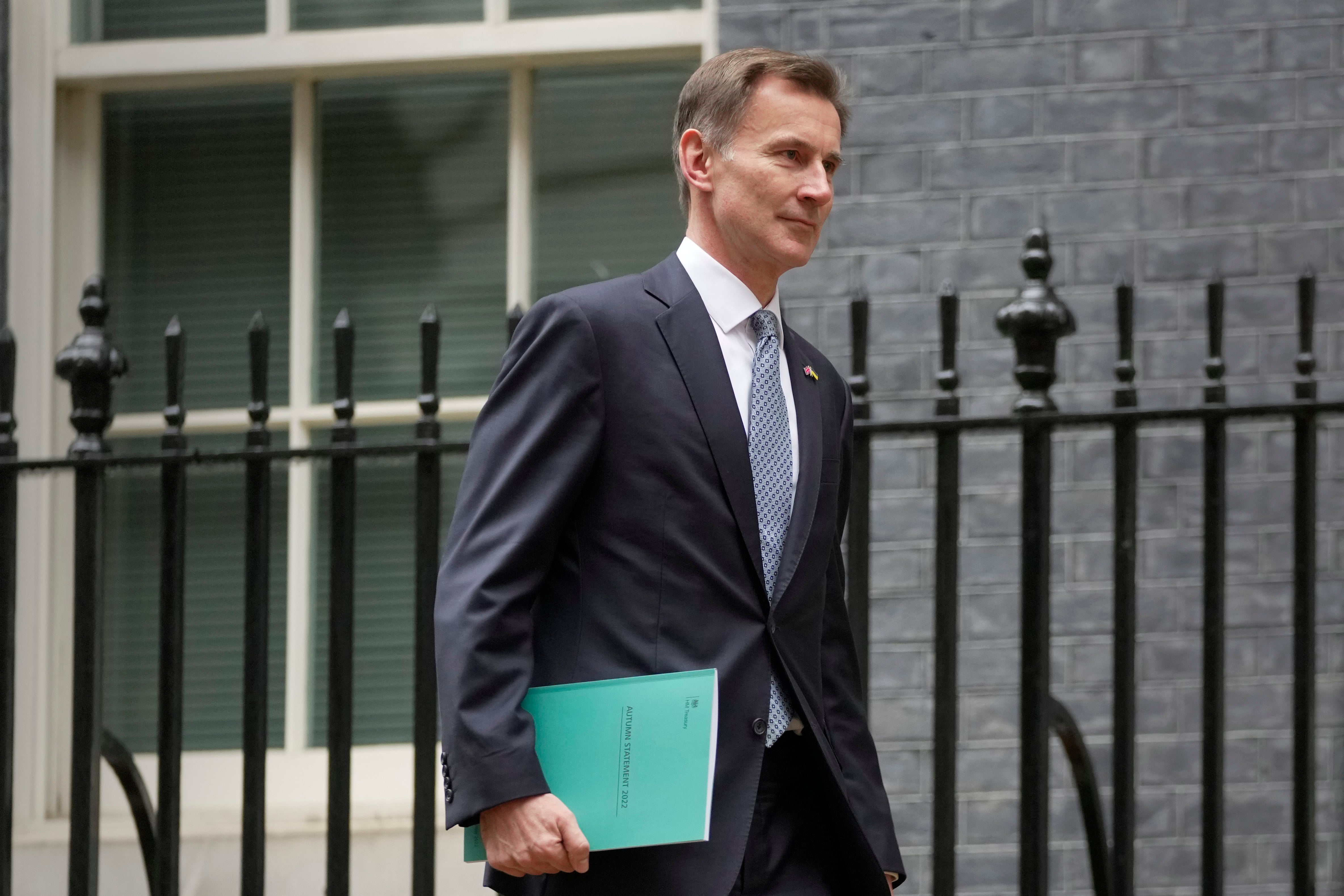Jeremy Hunt torches lessons of the financial crisis in desperate bid to find Brexit win
The reforms enacted after the devastating financial crisis of 2008 were carefully considered and had a consistent intellectual framework, writes James Moore. Jeremy Hunt’s package, by contrast, has been put together for cynical political purposes


The post-financial crisis spectacle of executives crying crocodile tears at hearings after their employers, or former employers, had received billions of pounds in bailout money that ought to have been spent on schools and hospitals was a truly dismal one.
Are we about to see a repeat?
On Friday, the chancellor, Jeremy Hunt, unveiled what have become known as the Edinburgh reforms after their announcement in the UK’s second-largest financial centre. The aim is to turbocharge the first, namely London.
Included in the package are plans to shake up the UK’s strict ring-fencing rules, designed to shield retail banks and their depositors from risks taken in the financial casino by investment banking units. And make no mistake, that’s what it is. Even if investment banks like to suggest there is a science to what they do.
The senior manager rule, which requires bosses to take responsibility for failings on their watch, is to be reviewed amid fears that it is putting financial whizz-kids off from coming to London.
Watchdogs will also be given a secondary objective of “delivering growth and competitiveness”, a highly controversial move that has horrified former regulators.
“Pointless or dangerous,” said Sir John Vickers, who led a reforming independent commission on banking.
“If they [regulators] had a competitiveness objective, it seems that would give them an ‘in’ to the way we run our business, which I think would be a bit tricky, really,” Sir Howard Davies, the former boss of the Financial Services Authority turned chair of NatWest, reportedly told staff.
Regulators absolutely should keep watch on banks’ financial soundness. They have no business (as Sir Howard is said to have stated) commenting on their cost-to-income ratios.
On that subject of financial soundness, you can just imagine the debate at the Bank of England with the new objective having been handed down.
“Listen, old boy. I know everything’s going well right now. Shouldn’t we tell banks to set aside more money for when things get a bit tight?”
“Yes, well we would have done that before but, you know, I think that might damage their competitiveness.”
“So cross our fingers and let it ride?”
“Yes indeed.”
There is a case for looking again at the rules now that Britain is out of the EU. The Brussels ruleset is designed to ensure consistency and commonality across a bloc of which Britain is, mostly to its detriment, no longer part.
Nor is it necessarily wrong to take a look at how the post-crisis rules are operating several years after their imposition – and to consider what works and what doesn’t.
But I reported on banks in the aftermath of the financial crisis and the prevailing view then was, understandably, “never again”. If you think Liz Truss was bad for having trashed the UK economy, remember the crisis nearly broke the world economy. It took a whole lot more than simply installing a new chancellor with a mandate to reverse course to put it right.
In that aftermath, with billions of pounds, euros and dollars having been spent, I read endless consultation documents, listened to numerous discussions, attended press conferences, spoke to reformers – in particular the Tory MP Andrew Tyrie – perhaps the best (and certainly the most influential) chair of the Treasury committee there has been.
What emerged from all that was widely consulted upon and considered with great care. The banking industry that emerged is better capitalised and much safer. It and the City of London have largely prospered, managing the post-Brexit chaos better than most (although the scars from that act of collective madness are easy enough to see).
The post-crisis regime had a consistent intellectual framework informed by eminently sensible ideas, including that the taxpayer should not be left carrying the can for losses incurred in the financial casino, that the savings of retail depositors should be protected from the rollers of dice and that bosses should be held accountable for foul-ups occurring on their watch – as opposed to the cynical spreading of blame through committees.
By contrast, Hunt’s reforms have been put together at speed, with purely political aims in mind. They have no intellectual framework beyond a desire to find something, anything, the Tory party can point to as a small win from the wreckage of the ultra-hard Brexit it has smacked the country with.
To that end, the lessons of the financial crisis have been torched. Best buckle up. It could easily get ugly.






Join our commenting forum
Join thought-provoking conversations, follow other Independent readers and see their replies
Comments